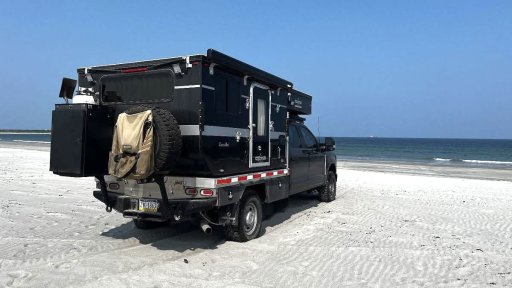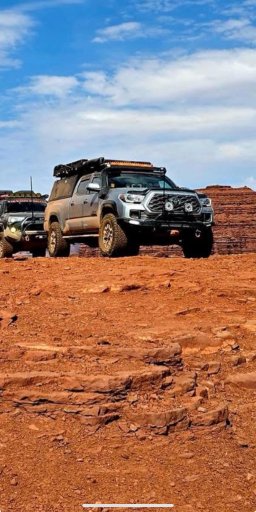Your shocks are balanced to your vehicle build. They control how fast your suspension moves up and down. The stiffer the shock the slower the suspension moves. The restriction is converted to heat. The heavier the suspension, the more heat generated. Heat generated is also going to be speed based. If you take a 2 inch body shock (same tube length and body design), it will absorb the same heat regardless of who builds it, as long as you stay with the major manufacture's. There's three basic shock designs. Standard gas shock where the gas is sitting on the shock oil (emulsion). Where there is a piston separating the gas and oil (IFP or internal floating piston) and reservoir (Remote IFP). I recommend either of the IFP with the reservoir being the easiest to buy. The standard gas shock is fine until the dirt road mix's the oil and gas into a froth. Now the shock becomes useless until it sits and separates. Long dirt roads can cause this.
The issue then is valving. Buying an out of the box shock is like buying shoes without knowing the actual size. The valving has to match. If you have two vehicles, one is solid axle and the other is independent, the solid will generate more heat and require a diffrent valving than the independent. The manufacture valves them based on the vehicles stock (unmodified) weight and bumps it up a little on the stiffness for off road. Also, shock manufactures lean towards a slightly stiff highway valving because most people drive more street and they don't want complaints of being too stiff. Most people who don't drive too fast on dirt roads are happy with the standard valving. I drive too fast for it and require a re-valved. tunable shock.
If the vehicle feels good on the dirt roads at your chosen speed, see if it feels squishy after 40 miles of dirt road. if it gets softer, you need a bigger shock with the same valving. To give you an idea. My Tacoma runs 2.0" body Icons and my Cruiser runs 2.5", both with reservoirs. When I ran a non reservoir 2.0 on the cruiser, it would get real soft after about 30 mins of 40 mph dirt road. Both vehicles now are perfect. In the past, I got about a year on the cruiser shocks before I overheated and needed to replace them. On my trailer I run a small KYB shock and they don't go six trips before I blow them out. I need either a short 2" or just a reservoir in the 1.5" I have. I'm having a hard time justifying $500 for custom length reservoir shocks. In the short size, all I can find is emulsion gas shocks valved for an early Volkswagen bug.
When I give advice like this, the response is normally "I'm not racing Baja with it!". Correct, that takes a diffrent valving and more expensive shock. Remember, the shock is tuned to the vehicle and application.







